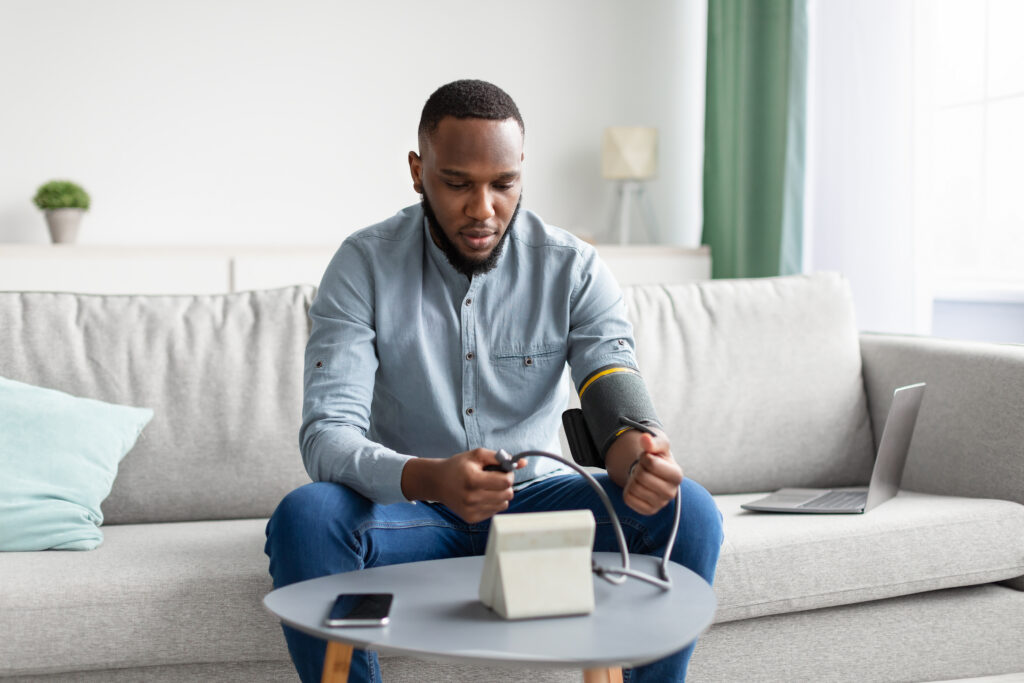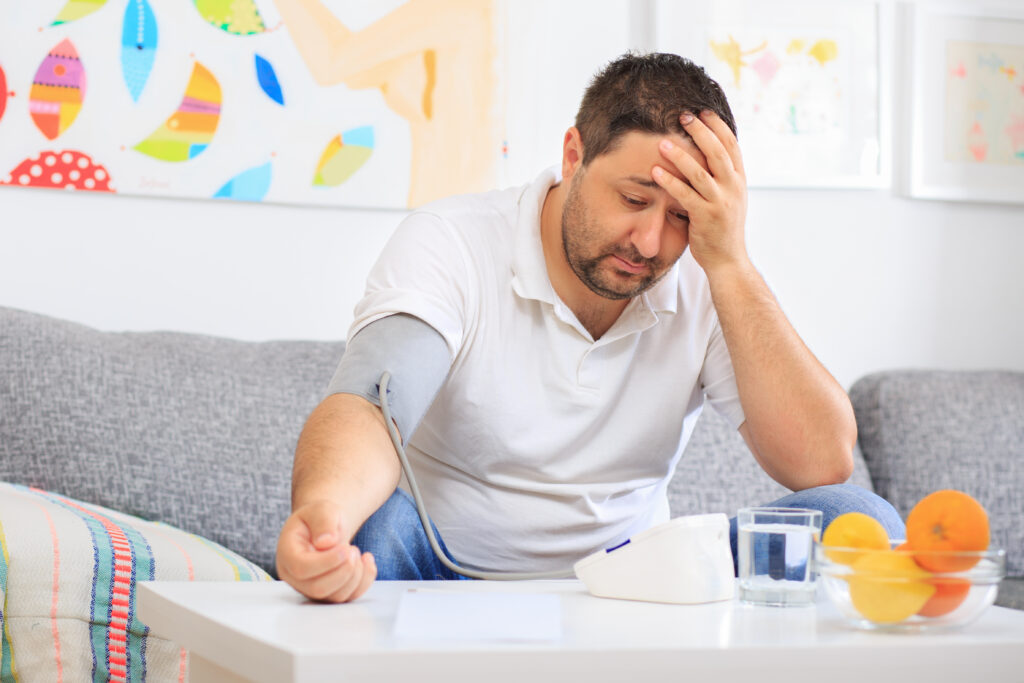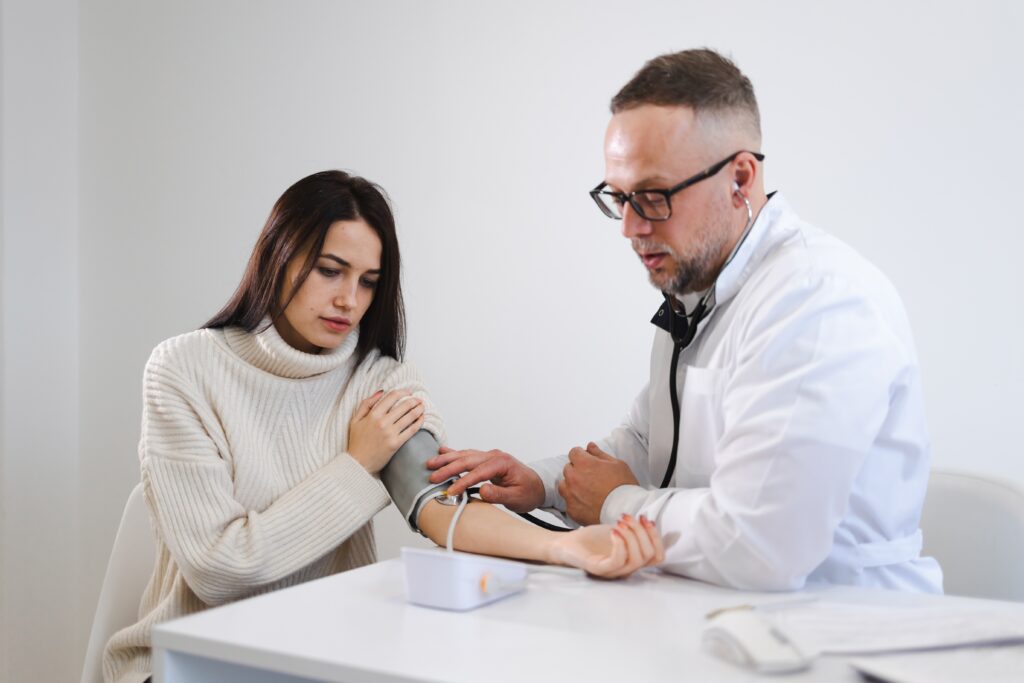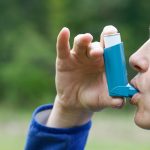April 14, 2023
Does High Blood Pressure Make You Tired?
Feeling unusually tired is occasionally expected, especially after an intense workout or a busy day at work. However, extreme tiredness and fatigue that frequently occur over a long period could indicate that you have high blood pressure.
High blood pressure doesn’t always cause symptoms, though it does cause fatigue in some people with this condition. If you are suffering from fatigue and aren’t sure what’s causing it, it may be time to see your doctor.
Here’s more about the link between high blood pressure and feeling tired, and how to contact Healthcare Associates of Texas if you are fatigued.
What Is High Blood Pressure?
High blood pressure is also known as hypertension. Many doctors will check your blood pressure during a routine exam or annual wellness visit.
A blood pressure measurement consists of two numbers: systolic pressure and diastolic pressure. Systolic pressure is the amount of pressure in your arteries during heartbeats. Diastolic pressure is the amount of pressure in your arteries between heartbeats.
A regular and healthy blood pressure reading is a systolic number of fewer than 120 millimeters of mercury (mm Hg) and a diastolic number of less than 80 mm Hg.1 This specific blood pressure reading is 120 over 80, or 120/80.
There are four blood pressure categories for readings above 120/80 mm Hg:
- Elevated: Someone with elevated blood pressure has a systolic reading of between 120 and 129 and a diastolic reading of under 80.

- Hypertension stage 1: Stage 1 is a systolic reading of between 130 and 139 and a diastolic reading of between 80 and 89.
- Hypertension stage 2: Stage 2 is a systolic reading of 140 or higher and a diastolic reading of 90 or higher.
- Hypertensive crisis: A hypertensive crisis is considered a medical emergency. It indicates a systolic reading of 180 or higher and a diastolic reading of 120 or higher.
Contact your doctor immediately if your blood pressure reading is over 180/120. If you are experiencing the following symptoms, go to a hospital emergency room or call 911:
- Chest pain
- Back pain
- Shortness of breath
- Numbness and weakness
- Difficulty speaking
- Changes in vision
What Is the Link Between Fatigue and High Blood Pressure?
If you have high blood pressure, your heart has to work much harder than usual to pump blood. Over time, if high blood pressure is not treated, it can lead to many other health problems. Many of those health problems can make you feel tired.
For instance, extreme tiredness is a coronary artery disease (CAD) symptom. CAD is a potential complication of high blood pressure and the leading cause of death in the U.S.
CAD develops when the arteries in your heart cannot deliver enough oxygen-rich blood to the heart. In addition to fatigue, common symptoms of CAD include chest pain, dizziness, and nausea.
Other complications of high blood pressure that can lead to fatigue include:
- Peripheral artery disease (PAD)
- Enlarged heart
- Heart failure
- Kidney damage
- Poor quality sleep
- Obstructive sleep apnea
Can High Blood Pressure Make You Feel Tired?
Yes, high blood pressure can make you tired, especially if it causes one or more complications. However, not everyone who has high blood pressure will experience fatigue and extreme tiredness.
If you are feeling unusually tired regularly, the best step you can take is to see your doctor. Your doctor can perform an exam, review your medical history, and talk to you more about your symptoms to uncover the root cause of your fatigue.
The Most Common Symptoms of High Blood Pressure
High blood pressure does not usually cause any symptoms, so you must check it regularly. You may not know you have high blood pressure until your doctor informs you about it during an exam.
You may only have symptoms of high blood pressure if it comes on suddenly. This type of high blood pressure is known as malignant hypertension, which is extremely dangerous.
When not addressed immediately, malignant hypertension can lead to complications including brain damage, kidney failure, and permanent blindness. Common symptoms of malignant hypertension include:
- Blurred vision

- Change in mental status
- Chest pain
- Headache
- Cough
- Nausea and vomiting
- Shortness of breath
- Weakness in the limbs or face
- Numbness in the limbs or face
- Less frequent urination
- Seizure
It also helps to know the symptoms of the various conditions linked to high blood pressure, such as CAD, PAD, and sleep apnea. Ask your doctor whether you meet risk factors for conditions linked to high blood pressure. Your doctor can review your personal and family medical histories and talk to you about your risk for related disorders.
How to Manage High Blood Pressure and Fatigue
High blood pressure can often be successfully managed with a combination of medications and heart-healthy lifestyle behaviors.
Blood pressure medications work in different ways to control your blood pressure. Some can help your blood vessels relax, while others can make your heart beat with less force. Medications commonly used to treat high blood pressure include:
- Angiotensin II receptor blockers (ARBs)
- Angiotensin-converting enzyme (ACE) inhibitors
- Beta-blockers
- Calcium channel blockers
- Diuretics
Fatigue may be a side effect of some blood pressure medications. Read the labels on your medications, and talk to your doctor if you are concerned about your drugs causing extra fatigue.
Certain lifestyle behaviors can naturally help lower your blood pressure. Your doctor may recommend the following behaviors to manage your blood pressure:
- Eating heart-healthy foods, such as leafy greens and fish

- Exercising regularly
- Not smoking
- Drinking less alcohol
- Getting quality sleep
- Managing and reducing stress
Many of the above behaviors can also help you combat fatigue. For instance, exercising regularly and eating healthy foods can give you more energy. Avoiding alcohol can lead to better sleep and less grogginess.
Another important way to combat tiredness with high blood pressure is to treat any related conditions. For example, if you are diagnosed with sleep apnea, work with a sleep specialist who can treat this condition and help you sleep better at night.
Request an appointment with Healthcare Associates of Texas today if you need help managing high blood pressure, fatigue, and/or related conditions, such as kidney damage. We can review your medical history, perform an evaluation, and discuss all your available treatment options.
References:
- American Heart Association. 2021. “Understanding Blood Pressure Readings.” American Heart Association. American Heart Association. 2021. https://www.heart.org/en/health-topics/high-blood-pressure/understanding-blood-pressure-readings.
- “Coronary Heart Disease – Symptoms | NHLBI, NIH.” 2022. www.nhlbi.nih.gov. March 24, 2022. https://www.nhlbi.nih.gov/health/coronary-heart-disease/symptoms.
- National Heart, Lung, and Blood Institute. 2022. “Coronary Heart Disease – What Is Coronary Heart Disease? | NHLBI, NIH.” www.nhlbi.nih.gov. March 24, 2022. https://www.nhlbi.nih.gov/health/coronary-heart-disease.
- Centers for Disease Control and Prevention. 2021. “About High Blood Pressure (Hypertension).” Centers for Disease Control and Prevention. May 18, 2021. https://www.cdc.gov/bloodpressure/about.htm.
- “Malignant Hypertension: MedlinePlus Medical Encyclopedia.” 2021. Medlineplus.gov. May 4, 2021. https://medlineplus.gov/ency/article/000491.htm.
- 2020. “Blood Pressure Medicines | Cdc.gov.” Centers for Disease Control and Prevention. January 23, 2020. https://www.cdc.gov/bloodpressure/medicines.htm.
DISCLAIMER
The information featured in this site is general in nature. The site provides health information designed to complement your personal health management. It does not provide medical advice or health services and is not meant to replace professional advice or imply coverage of specific clinical services or products. The inclusion of links to other web sites does not imply any endorsement of the material on such websites.




